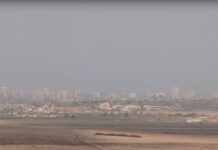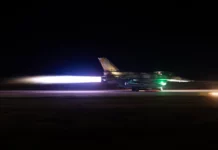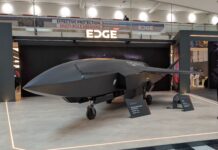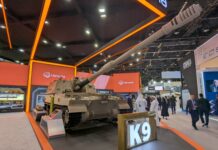The defence capabilities developed by Israel are equally applicable to the United Arab Emirates (UAE) as both countries face similar threats, Israel Aerospace Industries (IAI) CEO Boaz Levy has asserted.
Speaking to ESD at the IDEX 2025 defence exhibition in Abu Dhabi on 18 February, Levy said, “We started a long journey together with the UAE a few years ago. It was an outcome of the Abraham Accords and we are continuing this effort, and the fact that we are here today is the outcome of the good relationship we had along the years with the administration here, and we are here to demonstrate capabilities, and some lessons learned from the war in Israel, toward the future.
“And it’s not a secret to say that we are facing the same challenges,” Levy continued, “and we are facing the same type of threats, so any solution that Israel is developing to protect its population is valid here as well, and the main reason for me to be here is to demonstrate those capabilities and to create some kind of teaming agreement or collaboration with the local industry here, so we will be able to work in a better partnership.”
While Israel does, of course, face somewhat unique multi-front security challenges, Israel and the UAE do indeed share a number of similar security challenges. Both countries, for example, share the misfortune of being targeted by missiles and bomb-laden drones launched by the Yemen-based Islamist Houthi movement.
Asked to what extent Israeli government regulations could impinge on a closer defence-industrial relationship with the UAE, Levy pointed out that any defence activity in Israel, especially regarding exports, must comply with Israeli Ministry of Defense guidelines.
“We have to work with accordance to these guidelines and that’s what we are doing,” he said. “Currently, we are showing everything that we can, and we feel that’s fit to show here, to the eyes of the UAE and the eyes of the rest of the world.”
Asked about the areas in which IAI is currently focusing, Levy replied, “We are focusing on space. We believe that space has a major impact on the future battlespace. We are focusing on air and missile defence capability, which took a major in the war [against Hamas] in Israel, but also opened the eyes and put a lot of light toward any country in the world that wants to protect its population, and many leaders knowing that and have some interest on that, so we are putting our emphasis on that.
“Then I would say that we’re working with UAVs [unmanned aerial vehicles] also,” Levy continued. “We were the first one to [produce] a UAV in the world and present it and since then we are evolving our solution to have new capabilities.”
With this Levy was probably referring to the IAI Scout tactical surveillance UAV, which gained an initial operating capability in 1977, differentiating this from previous reconnaissance drones developed during the Cold War. At the very least it is fair to say that IAI has around 50 years’ worth of experience with UAVs.
“And last but not least,” said Levy, “we are putting a lot of effort on land-based capabilities. We’ve built a new structure that will meet future combat [requirements] in terms of autonomous capability, and we are developing these days the future, and some of the building blocks that we are developing are already ready and being involved in the combat we are facing.”
Asked about the experiences that Israel has faced since the Hamas terrorist attack of 7 October 2023 and the lessons learned as a result of that, Levy replied, “There are a lot of changes and a lot of directions that have been put [in place] in the last 500 days. First, we increased our capacity in terms of production. It’s not an easy task to do and involved a lot with supply chain management, but it’s working. The other thing: we improved our capabilities in terms of countering UAVs, and just two weeks ago we presented to the [Israeli] minister of defence our capability to counter kamikaze drones. It’s a new system that enables the user to counter the Kamikaze drone across several distances, and it’s optimized to the solutions of the end user. This demonstration went really good and hopefully it will be marketed very soon.”
Lastly, Boaz referred to something of a change in philosophy with regard to presenting the most appropriate solutions. “We are running very sophisticated machines in terms of technology that will be able to counter any attack from our enemies, but sometimes you need to balance your solutions and have simple products that will give you the capability,” he said. “What I mean is sometimes it’s better to use a machine gun in order to counter several objects than to use 100 missiles or so. And you need to tailor between a simple solution and a very smart one, and to tailor your system-of-systems adaptation in a manner that it will choose the optimum solution for each case.”














